JOURNAL
His is a culinary journey extraordinaire
When speaking to Chris Whitham, there’s an immediate sense of ease – the kind that only comes from years spent doing what one loves in a place that feels like home. It's clear from the outset that this is someone who thrives in the natural rhythm of camp life, where days blur and weekends are irrelevant. Come with us on a journey into culinary passion - one that is putting Nimali on the map for its fabulous food...
Chris has been with Nimali for just over a year, though his culinary journey began far earlier. Born into a food-focused family in Durban, South Africa, he was drawn into the world of cooking almost by osmosis. His mother worked in catering, and his brother, William, is a well-known chef – it was only natural that Chris would follow suit.
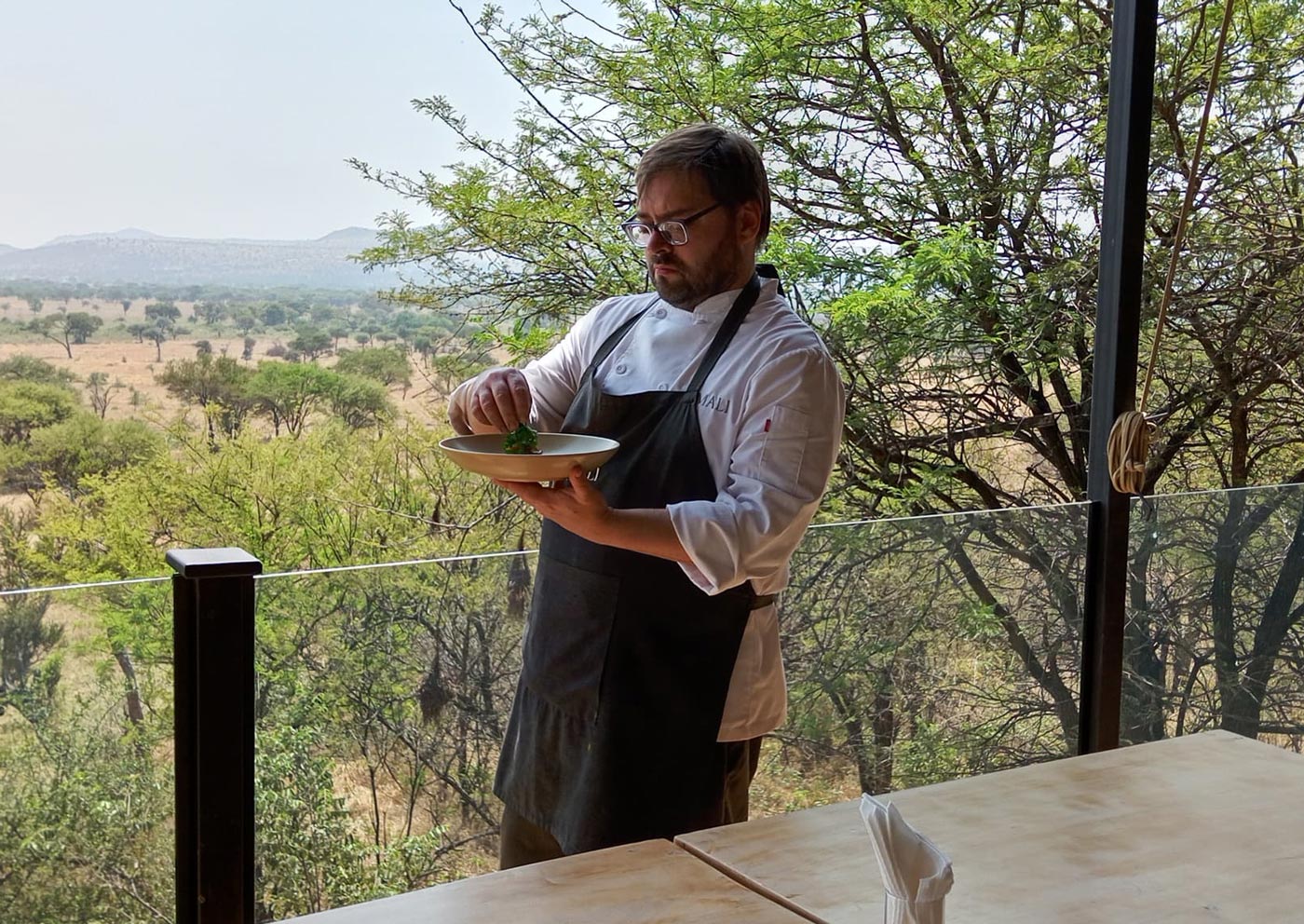
“I’ve loved to cook since I was 12,” he explains. “At first, it was just a hobby, but then I thought – why not turn it into a career?” He even flirted with the idea of studying law, but decided at the last minute that it wasn’t for him. Instead, he trained formally at the Christina Martin School of Food and Wine and quickly found himself in head chef roles. Much of what he knows, though, has been absorbed over time, particularly during his years working in camps across Africa. “When I learn something, I don’t usually forget it,” he says. “I’ll be making something and think – oh, this is from so-and-so in 2007.”
His first taste of life in a safari lodge came two decades ago, and it proved transformative. “I absolutely fell in love with it. The food was more creative – you’re focussing on a smaller group of people, and you get to give them a really personal experience.” From there, he followed his instincts – and a deep familial connection – to Botswana, his parents’ homeland. Four years ago, the road led him north to Tanzania, and eventually to Nimali, where he now oversees culinary operations across three camps.
What drew him to Nimali was more than just the opportunity to create good food. “It was a privilege to join a company that’s just starting out, but already has such a strong ethos – and such a wonderful variety of camps in very different landscapes across Tanzania.”
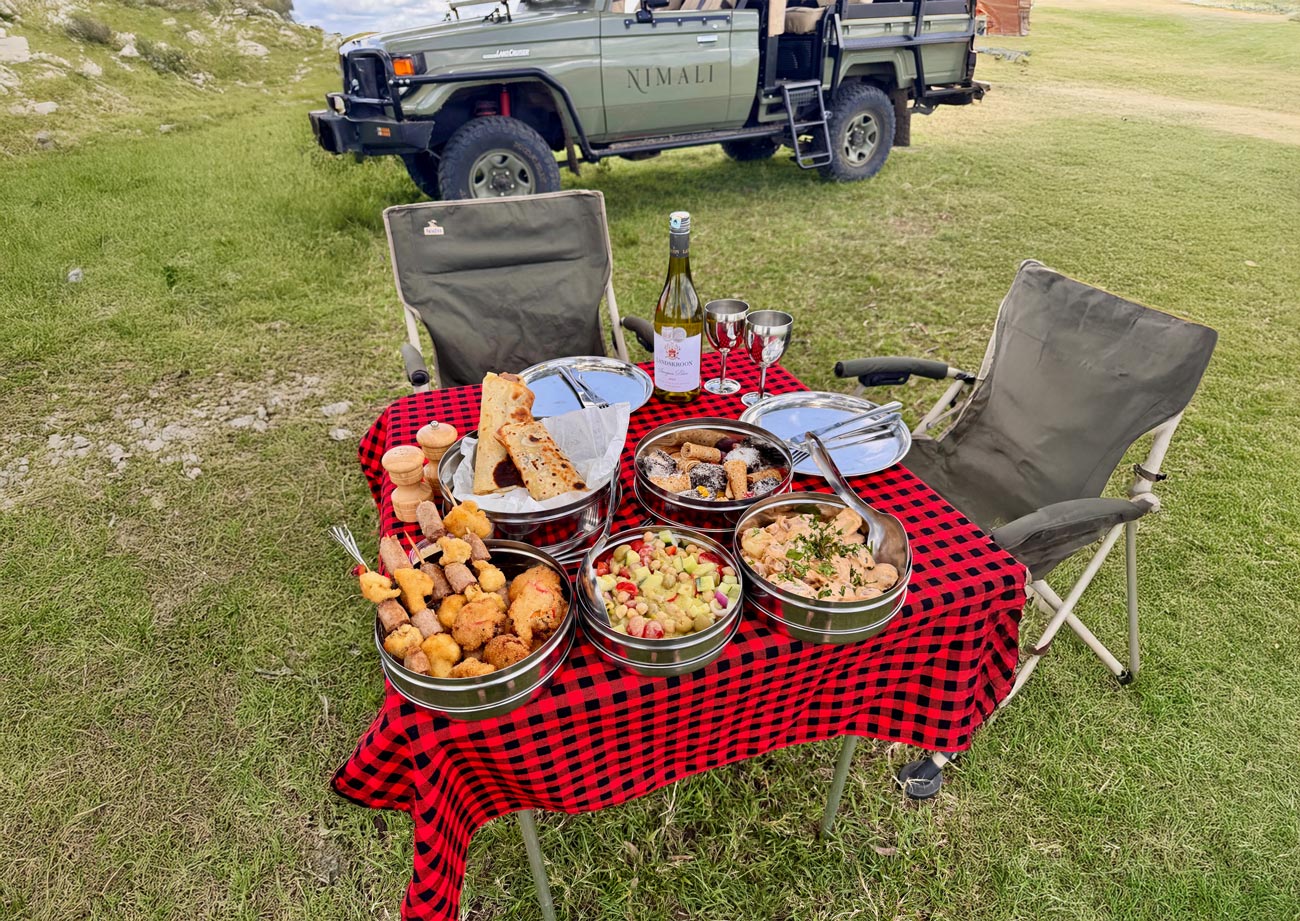
That sense of place is central to Chris’s cooking. He doesn’t believe in importing a culinary identity from one lodge to another. Instead, he draws from the location itself, allowing each environment to shape the dishes that emerge from the kitchen. Right now, he’s immersed in the flavours of Tanzania – and loving it.
“There’s a huge Arabic influence in the local food,” he says. “I love the ginger, the coconut, the chilli... even the coffee here is amazing. We’ve been experimenting with coffee beans to infuse and smoke dishes – it’s very different from Southern Africa, which is part of the appeal.” He’s genuinely surprised Swahili flavours haven’t made more of a mark on the global food scene. “There should be Swahili restaurants in New York and London by now.”
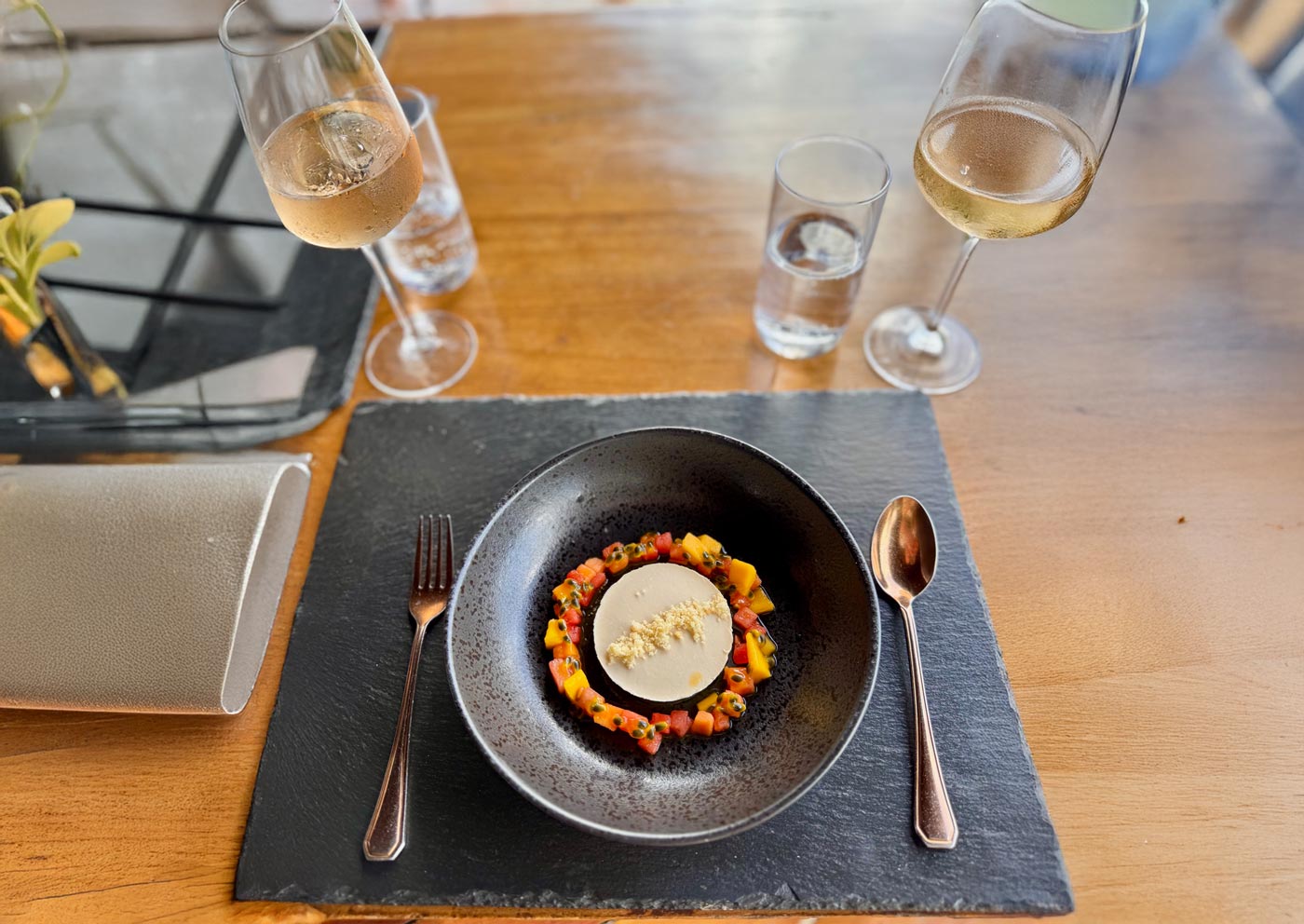
Chris doesn’t define himself by a signature dish. Instead, it’s the full guest experience that drives him – from the early morning wake-up coffee to the final bite of dessert. “Everything has to be good – pastry, savoury, everything. It’s all about care and passion, giving each guest a complete experience.”
That care extends to how he sources ingredients too. With no large-scale agriculture or factory farming, Tanzanian produce often comes from small, sustainable shambas – family-run gardens that feed into the bustling market in Arusha. “I love that it supports local farmers,” Chris says. “It’s more effort, but it feels right.”
Logistics can be challenging, of course – particularly with meat and seafood. The assumption that fresh fish flows from Zanzibar to mainland Tanzania doesn’t hold up. “It’s surprisingly hard to get fish from Zanzibar to us,” Chris explains. “You’d think there’d be a proper fish shop in Arusha, but there’s nothing.” Instead, the team leans on sustainably sourced local species like snapper, bream and tilapia.
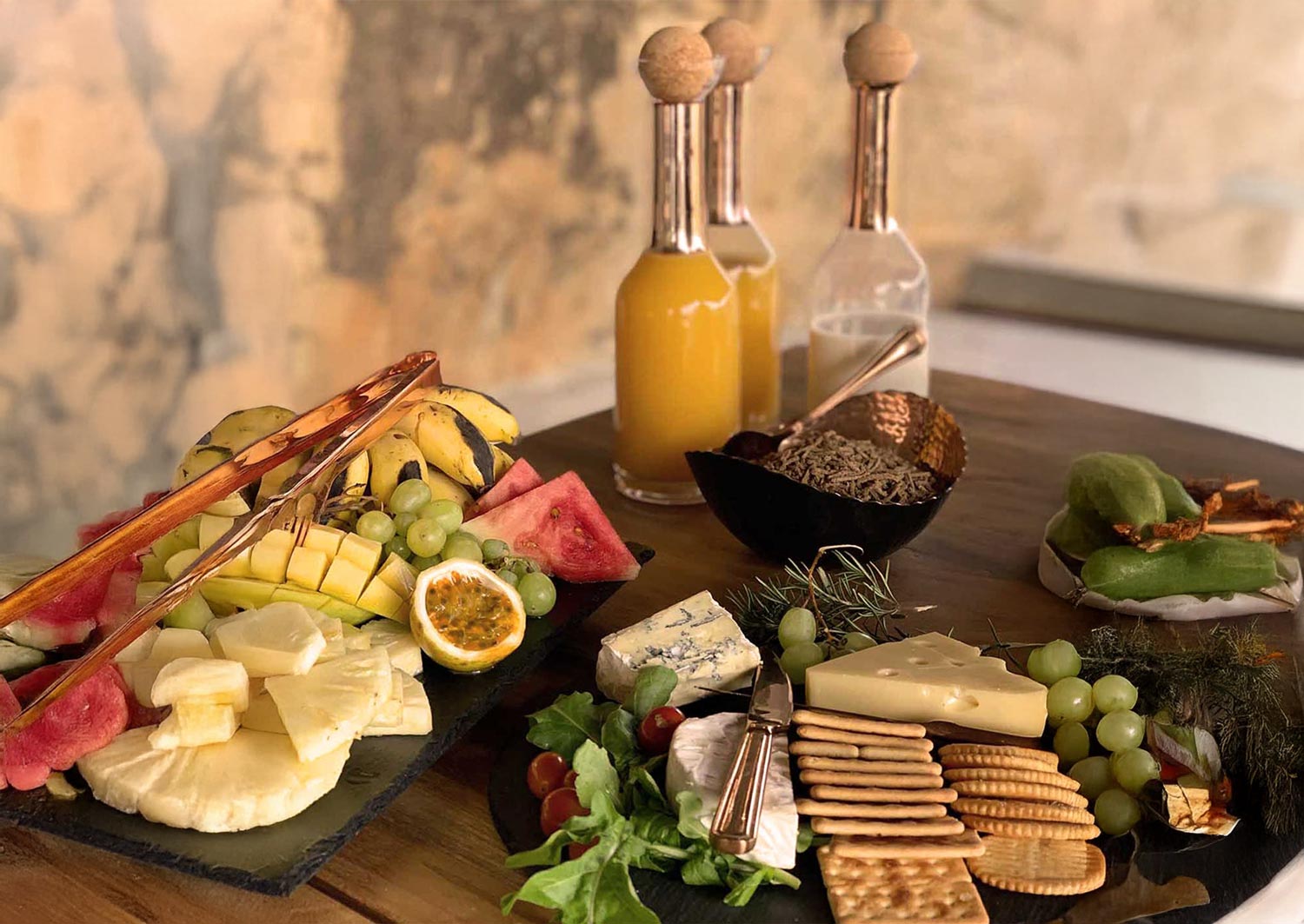
Even dairy can be tricky. Tanzania isn’t known for its cheese, but the camps make do, sourcing what they need from neighbouring Kenya. “We’re fine for milk and butter, but most of our cheese comes across the border,” Chris says.
Managing dietary requirements is another area where the kitchen has adapted resourcefully. “We don’t have fancy gluten-free flours,” he laughs, “so we make our own using local grains and nuts. Vegan dishes are easy because the fresh produce here is just incredible.” Every guest with dietary needs receives a tailored menu – thoughtful, practical, and full of care.
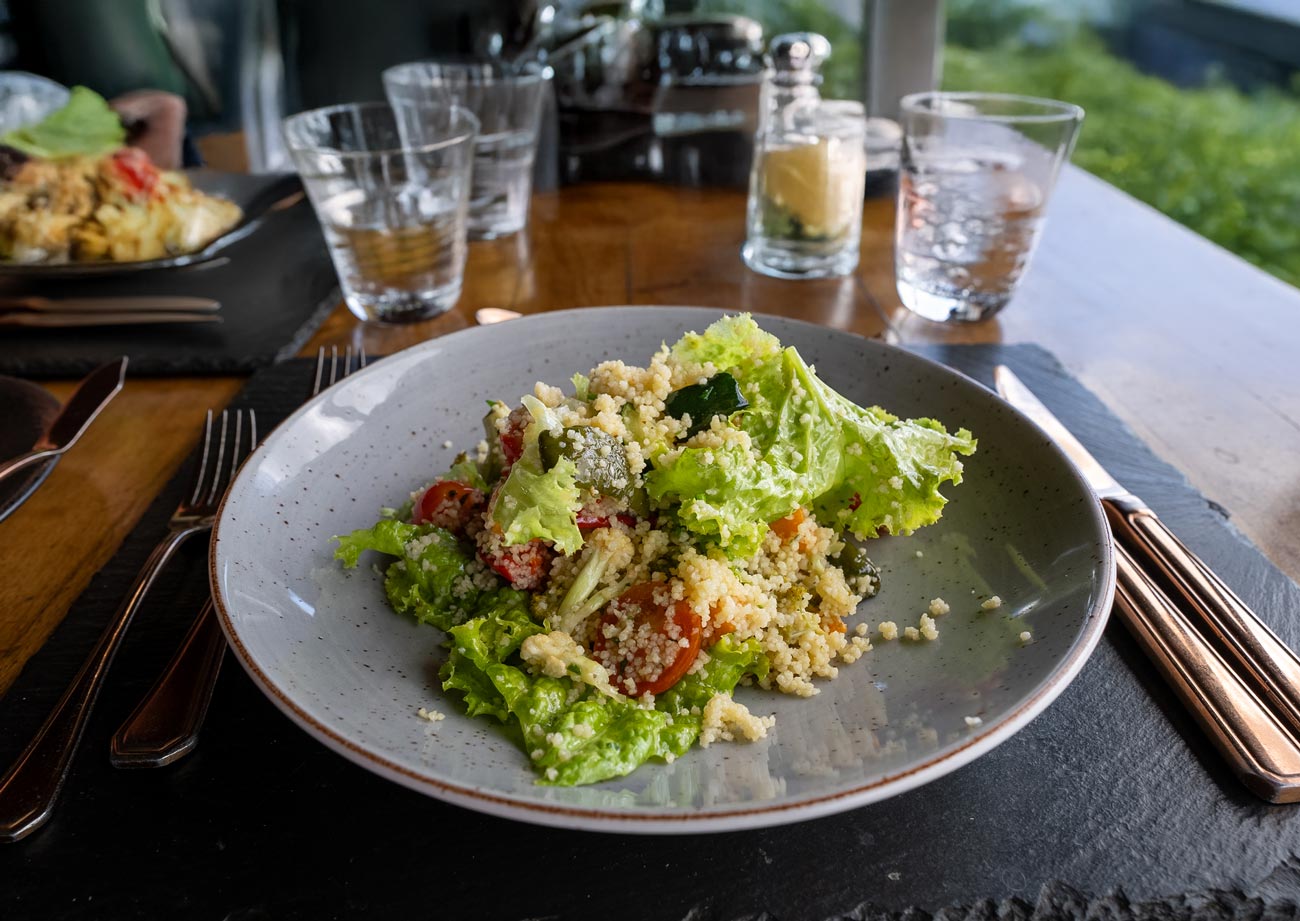
Chris’s menus are seasonal, and rotate based on what’s available. The daily routine is structured, but far from rigid. “Mornings begin with wake-up coffee – Tanzanian, of course – and then breakfast features the freshest local fruits, homemade pastries and mueslis, and several hot options.
Lunch is family-style, often with local dishes like pilau and mishkaki (Tanzanian kebabs).” Dinner is more formal – a four-course affair, starting with soup, followed by chakula mbok, a tapas-style shared platter, then a choice of red meat, white meat or vegetarian mains, and a dessert tasting. When available, a cheese board and homemade lavash round off the experience.
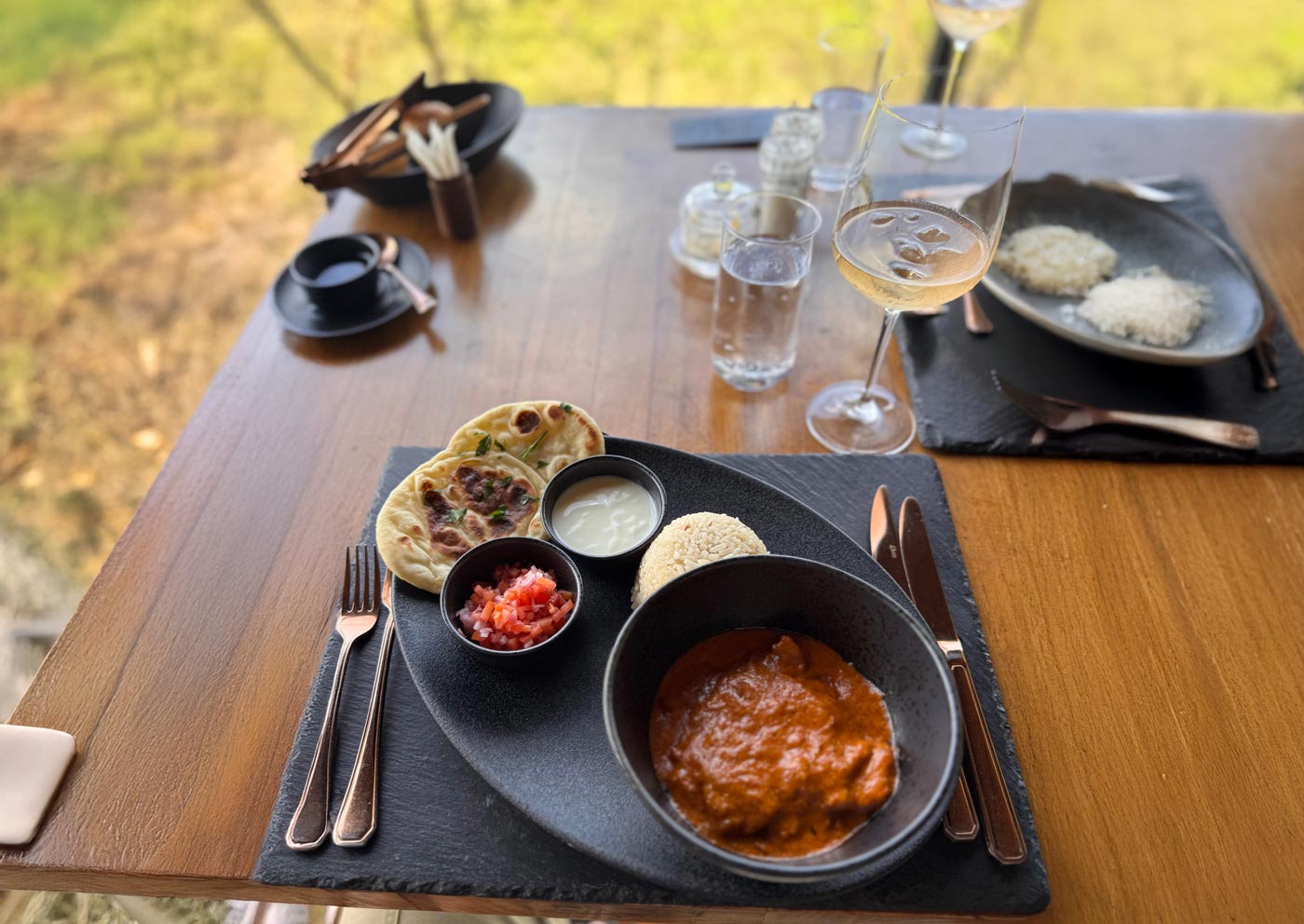
Wine, for now, is not formally paired with meals, though Tanzania is beginning to produce its own. Most of the wine list is still proudly South African.
As head chef across three camps, Chris now spends more time leading and mentoring than he does cooking every plate. “It’s humbling,” he says. “Many of the team haven’t worked in hotels or restaurants, and yet they learn so quickly. Their growth over just a year has amazed me.”
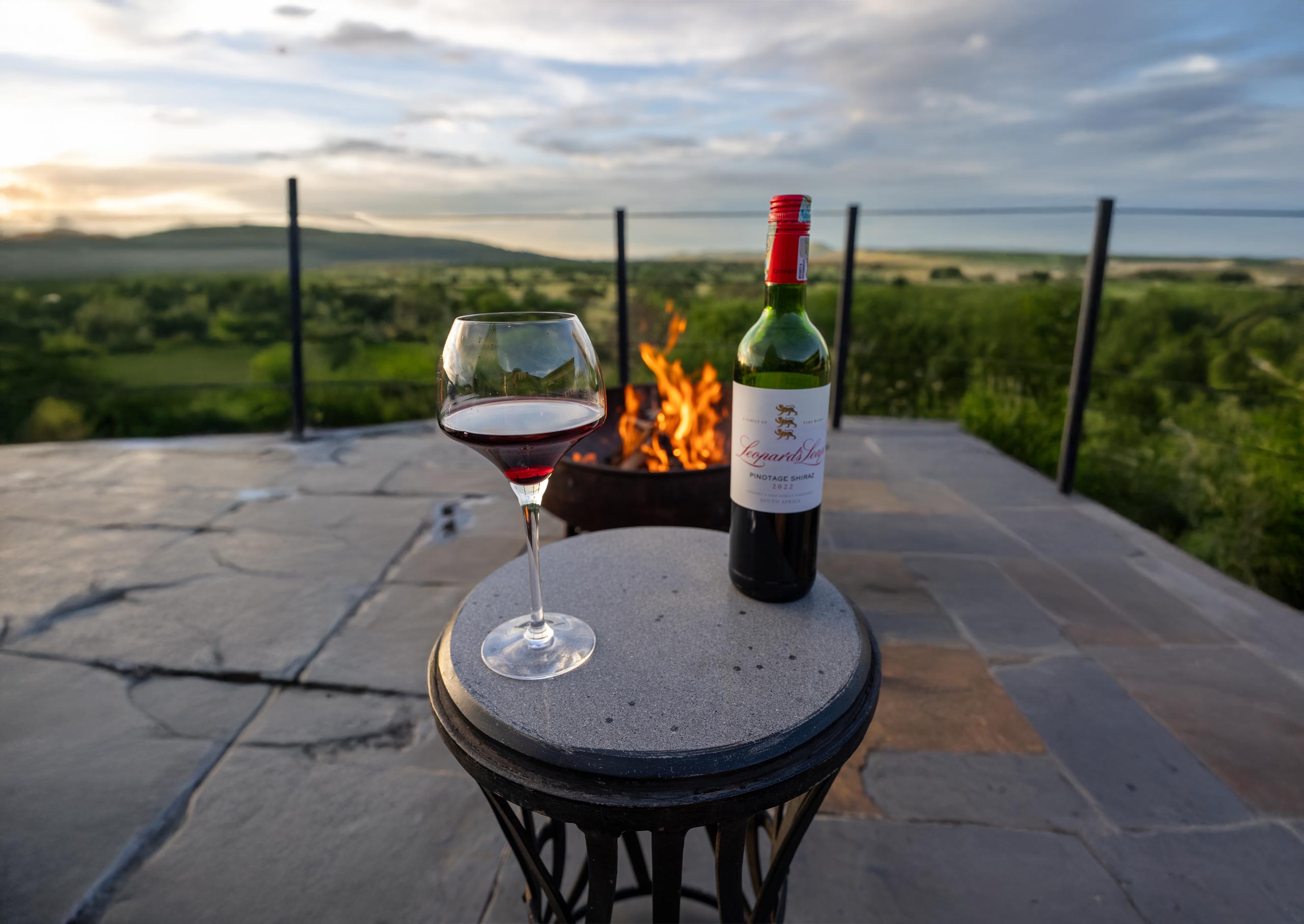
He genuinely enjoys teaching – not just for the results, but for the satisfaction of seeing potential realised. “We’re looking into formal training programmes too. It’s tricky in Tanzania, but hospitality is huge here. If someone is willing to learn, they can build a real career.”
His own life remains somewhat nomadic – rotating between Mara Serengeti and Tarangire every three months or so. But it’s a rhythm he enjoys. “You never become blasé about the bush,” he says. “Every time I see the sunset over the Serengeti, it still takes my breath away. The scent of the bush, the trees – it really is like the Lion King.”
After 20 years in the safari industry, Chris has found his sweet spot. Nimali, he says, stands out for its humility. “There’s no show-off mentality. We let the local ingredients speak for themselves. That takes maturity – and I think that’s what makes it so special.”













